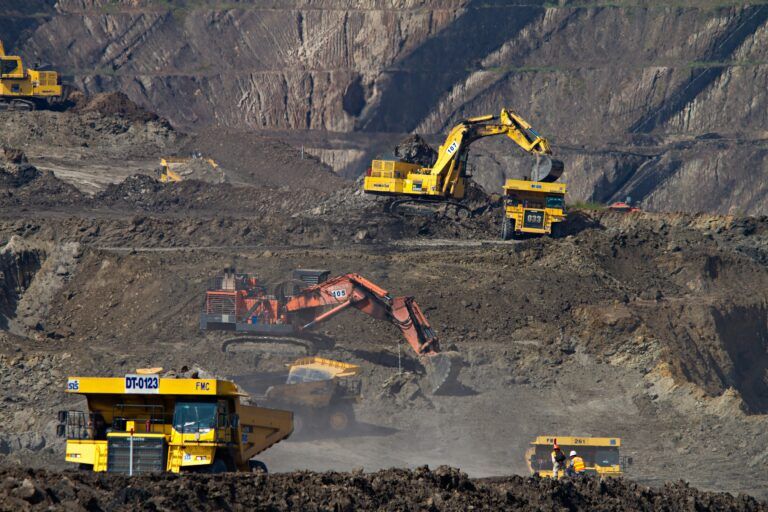(Los Angeles, April 9, 2025) – New executive orders issued by President Donald Trump to boost the coal industry and limit the ability of states to mitigate the climate crisis will threaten the health, well-being, and lives of people in the United States and stymie global climate efforts, Climate Rights International said today.
On April 8, the White House announced two executive orders (EOs) that jeopardize state-level and global climate action. The first EO, “Reinvigorating America’s Beautiful Clean Coal Industry,” aims to resuscitate the dying U.S. coal industry by increasing coal mining on public lands, promoting coal exports, and increasing financing for coal projects. The second EO, “Protecting American Energy from State Overreach,” is aimed at preventing states from taking action to address climate change and limit greenhouse gas emissions, including carbon tax laws and tort lawsuits against fossil fuel companies.
“Trump’s moves to limit state climate action and increase coal production are a bailout to the fossil fuel industry and a death sentence for thousands in the U.S.,” said Krista Shennum, researcher at Climate Rights International. “As the world’s biggest historic emitter of greenhouse gases, the U.S. has both a moral and a legal obligation to reduce its greenhouse gas emissions and hold polluters accountable. Yet Trump is prioritizing profits for his campaign contributors over the health of people and the planet.”
Coal is a particularly hazardous and high-emitting fossil fuel. Coal-powered electricity releases at least 20 times more greenhouse gas emissions across its lifecycle than the full cradle-to-grave emissions of renewable energy sources such as wind and solar.
Globally, coal combustion is a major contributor to air pollution. Coal-fired power plants emit particulate matter, sulfur dioxide, nitrogen oxides, heavy metals, and other air pollutants that contribute to increased risks of respiratory and lung diseases, cancer, heart disease, and neurological impacts. Nearly half a million deaths in the United States were caused by pollution from coal between 1999 and 2020. Coal miners are also at increased risk of illness and death from exposure to coal mine dust.
Efforts by Elon Musk’s Department of Government Efficiency to terminate leases used by the Mine Safety and Health Administration and drastically shrink staff at the National Institute of Occupational Safety and Health will worsen health impacts for current and former miners and their families.
While the EO claims it will “lower electricity costs,” renewable energy is already much cheaper than coal in the U.S., undermining Trump’s economic claims for coal power. The renewable energy industry is also responsible for significantly more jobs than the coal industry, with roughly 2.3 million jobs in 2023 compared to fewer than 45,000 coal mining jobs the same year.
Concerningly, the coal executive order also moves to reclassify coal as a “mineral,” meaning that coal mining will now be granted expedited permitting via a March 20 executive order on increasing U.S. mineral production. Moves to expedite mining by relaxing environmental laws and public consultations pose serious threats to frontline communities and ecosystems.
“Despite the Orwellian language in Trump’s executive order, coal is not beautiful, and it is certainly not ever clean,” said Shennum. “And with the high financial costs and human impacts of coal power, Trump is playing a loser’s game by trying to resurrect coal by fiat.”
The second EO purports to block efforts undertaken for decades by individual states to address emissions by giving the Attorney-General the power to halt enforcement of any state law or civil action that “burdens” the use of domestic energy sources such as fossil fuels.
States have passed laws and regulations, and brought lawsuits, to mitigate the climate crisis and hold major polluters accountable for emissions. These efforts include California’s cap-and-trade program, first authorized in 2006, which sets a pollution “cap” and allows entities to buy and trade emission allowances. Vermont’s innovative Climate Superfund Act allows the state to recover financial damages from fossil fuel companies for the harm they have caused and use the proceeds for climate adaptation projects.
States, counties, and cities across the U.S. have also filed lawsuits against major oil and gas companies for their role in the climate crisis. More than half of the world’s carbon dioxide emissions are produced by just 36 companies, many of which have also played significant roles in driving decades-long misinformation campaigns about the impacts of burning fossil fuels on the climate. It is unclear whether the executive order will succeed in halting these lawsuits. The U.S. Supreme Court recently declined to hear requests by the fossil fuel companies to halt the cases.
These and other recent EOs are part of a broader effort by the Trump administration to promote fossil fuels, including withdrawing from the Paris Agreement, ramping up oil and gas production, promoting fossil fuel-based plastics, pausing a national electric vehicle infrastructure program, and pulling funding for global climate disasters.
“It’s hard to believe anyone would do this, but Trump seems to be actively trying to make the climate crisis worse,” said Shennum. “His actions will harm people all over the world, including communities in the U.S. that are dealing with unprecedented floods and wildfires. It is time for politicians and courts to step up and stop this madness.”







